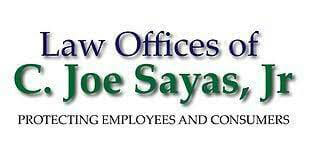
Q: I have been employed by a mid-size company in Los Angeles for over 2 years. Recently, some co-workers privately talked to me that several workers in their department often tell crude sex jokes that make everyone else uncomfortable. They’re afraid to complain because two of the perpetrators are in management positions. What can we do?
A: Report the possible misconduct to your employer. Check if you have an employment handbook which outlines your employer’s anti-harassment or anti-discrimination policies. These policies may tell you the steps to take in order to report a misconduct or file a complaint. Company policy may direct you to report to your immediate supervisor or to human resources or call a confidential hotline.
In notifying your employer, be professional and cordial. State the facts of what happened, be objective, and avoid name-calling or derogatory language. Mention dates, times and examples of the more serious incidents that happened. You may state your concerns regarding how these incidents affect workplace safety or work productivity.
By notifying your employer, you are engaging in “protected activity.” In the context of harassment or discrimination, protected activity is defined as an activity that a worker may do without fear of retaliation by the employer. Exercising a legal right is protected activity. Other examples of protected activity under the Labor Code may include (but not limited to):
- Filing or intending to file a wage claim
- Filing of intending to file a harassment or discrimination complaint
- Reporting a hostile work environment or other types of misconduct at work
- Refusing to engage in misconduct
- Discussing wages with others at work
- Using or attempting to use sick leave benefits
- Asking for reasonable accommodation due to a health-related issue
- Reporting about safety and health issues in the workplace
- Taking time off from work to serve on a jury
- Appearing as a witness against the employer in a government investigation
Employees have a legal right to a safe working environment free of harassment and discrimination. If the employee’s reporting of a hostile work environment or other misconduct results in termination, that may be employer retaliation. Employers who engage in retaliation due to a legally protected activity may be liable for damages.
Even though not every harassment and retaliation case will result in multi-million verdicts, these claims are taken seriously by the courts and the juries as shown by the verdicts handed out. Consider the case reported in the news:
Alfredo Martinez and Justin Page, two men who worked for Southern California Edison in the Bay Area, sued their employer claiming that they were fired after complaining about rampant sexual and racial harassment in the workplace. During trial, the two employees (through their attorneys) presented evidence to show that the workers at the location they worked at regularly engaged in sexual and racial harassment, which was sometimes covered up by management. When these two workers complained about it, they were disciplined and ultimately forced to leave the company.
The jury sided with the employees and returned a final verdict of $22.3 million in compensatory damages to Martinez, including $16 million in emotional distress. Page was awarded $2.2 million in damages, which included $1 million in emotional distress damages. Martinez was awarded $400 million in punitive damages while Page was awarded $40 million. The total award of $464 million is believed to be the largest in the state involving a non-class action case.
The Law Offices of C. Joe Sayas, Jr. welcomes inquiries about this topic. All inquiries are confidential and at no-cost. You can contact the office at (818) 291-0088 or visit www.joesayaslaw.com. [For more than 25 years, C. Joe Sayas, Jr., Esq. successfully recovered wages and other monetary damages for thousands of employees and consumers. He was named Top Labor & Employment Attorney in California by the Daily Journal, consistently selected as Super Lawyer by the Los Angeles Magazine, and is a past Presidential Awardee for Outstanding Filipino Overseas.]

